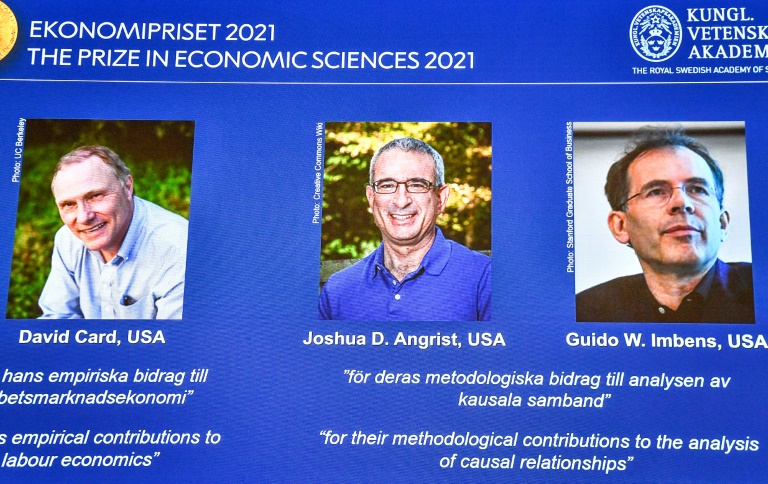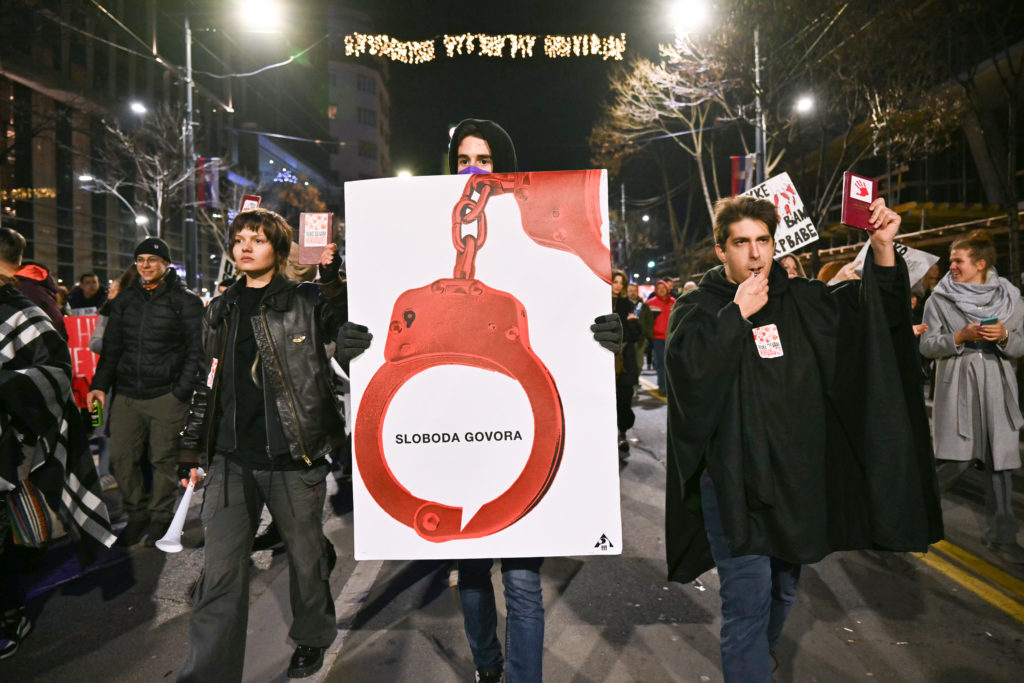Three US-based academics on Monday won the Nobel Economics Prize for research that “revolutionised” empirical work in their field and brought better understanding of how labour markets work, the jury said.
Canadian David Card, Israeli-American Joshua Angrist and Dutch-American Guido Imbens shared the prize for providing “new insights about the labour market” and showing “what conclusions about cause and effect can be drawn from natural experiments,” the Nobel committee said in a statement.
Card’s work has focused on the labour market effects of minimum wages, immigration and education. Angrist and Imbens demonstrated how precise cause and effect conclusions can be.
Half of the 10-million-kronor ($1.1 million, one million euro) prize went to Card, a professor at the University of California, Berkeley, who was born in Canada in 1956, “for his empirical contributions to labour economics.”
The other half went jointly to Angrist, 61, a professor at the Massachusetts Institute of Technology (MIT), and Imbens, 58, a professor at Stanford, “for their methodological contributions to the analysis of causal relationships.”
“I was absolutely stunned to get a telephone call,” Imbens told reporters during a phone interview following the announcement.
“Josh Angrist was actually the best man at my wedding so he is a good friend, both professionally and personally, and I’m just thrilled to share the prize with him and David,” he added.
The three laureates “have revolutionised empirical work in economics. They have shown that it’s indeed possible to answer important questions, even when it’s not possible to conduct randomized experiment,” Nobel Committee member Eva Mork told reporters in announcing the prize.
The trio was honoured for their work using so-called “natural experiments”, in which chance events or policy changes result in groups of people being treated differently, in a way that resembles clinical trials in medicine.
– ‘False Nobel’ –
Last year, the honour went to US economists Paul Milgrom and Robert Wilson for their work on theories of auctions as well as inventing new auction formats.
The economics prize, officially the Sveriges Riksbank (Sweden’s central bank) Prize in Economic Sciences in Memory of Alfred Nobel, was the only prize not among the original five set out by the will of Alfred Nobel, who died in 1896.
It was instead created through a donation from the Swedish central bank in 1968, and detractors have thus dubbed it “a false Nobel”.
Just like this year, the Economics Prize has generally been male-dominated. It has only been awarded to two women in history, Elinor Ostrom in 2009 and Esther Duflo in 2019.
All three of this year’s economics laureates were among those speculated for the prestigious award, in contrast to the winners of the other prizes this year.
The Peace Prize went to investigative journalists Maria Ressa of the Philippines and Dmitry Muratov of Russia, while the Literature Prize was won by Tanzanian-born novelist Abdulrazak Gurnah.
The Medicine Prize went to US scientists David Julius and Ardem Patapoutian for discoveries on receptors for temperature and touch.
The Chemistry Prize went to Germany’s Benjamin List and Scottish-American David MacMillan for their work on catalysts.
For the first time, the Physics Prize went to two climate scientists, Japanese-American scientist Syukuro Manabe and Klaus Hasselmann of Germany, with the second half of the prize going to Giorgio Parisi of Italy.
The Nobel Foundation has already announced that the glittering prize ceremony and banquet held in Stockholm in December for the science and literature laureates will not happen this year due to the pandemic.
A decision has yet to be made about the lavish Peace Prize ceremony held in Oslo on the same day.











